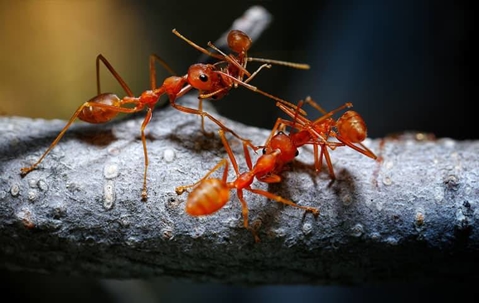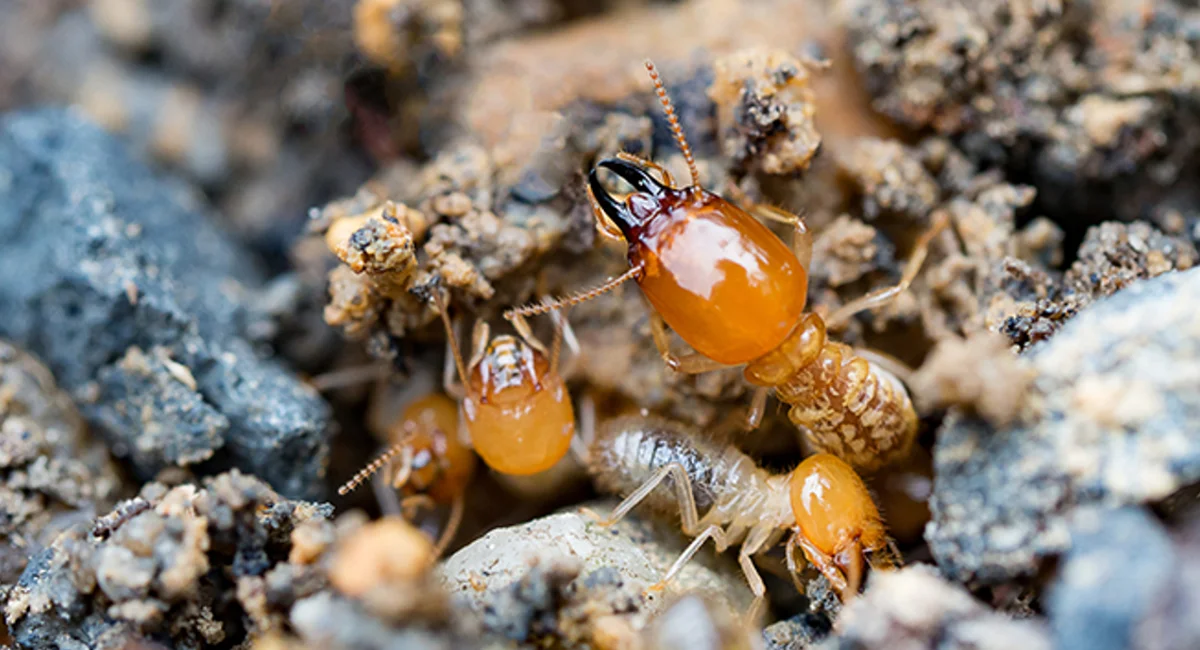Ecological Effect of Pest Control: Harmonizing Effectiveness With Sustainability
The ecological effect of pest control is a vital issue that needs a fragile equilibrium between attaining efficiency in managing bugs and making certain sustainability of our communities. As we make every effort to shield our crops, homes, and wellness from the risks postured by insects, the approaches we use can inadvertently damage the environment. From the usage of hazardous chemicals that permeate into our dirt and water to the unintended repercussions on non-target varieties, the effects of traditional parasite control practices are significant. There are emerging methods that supply hope for a more sustainable technique to pest administration. These solutions not only goal to resolve the immediate insect troubles but likewise take into consideration the lasting health of our planet.
Dangerous Chemicals in Bug Control
The usage of hazardous chemicals in pest control poses significant ecological and wellness risks that warrant mindful factor to consider and reduction methods. Pesticides, herbicides, and chemicals are generally utilized to eliminate parasites, but their widespread application can bring about unexpected repercussions. These chemicals can contaminate soil, water sources, and the air, influencing not just the targeted insects but additionally beneficial insects, wild animals, and humans.

To address these threats, incorporated bug administration (IPM) techniques are being advertised as an extra sustainable alternative. IPM entails a mix of methods such as organic control, habitat control, and the targeted use chemicals as a last hope (ant control kernersville nc). By adopting an all natural method to pest control, we can reduce the ecological and health and wellness impacts connected with damaging chemicals while efficiently managing pest populaces
Impact on Non-Target Variety
Thinking about the unplanned effects of insect control approaches, the effect on non-target varieties is an essential element that needs complete assessment. While bug control steps intend to target particular parasites, various other organisms in the environment might be unintentionally influenced. Non-target species, consisting of valuable insects, birds, animals, and also plants, can suffer straight or indirect damage from pesticide applications or organic control methods.
Chemicals can have sub-lethal or lethal effects on non-target types. For instance, insecticides developed to deal with a certain insect bug may hurt pollinators like or all-natural predators such as ladybugs. Additionally, chemical residues can collect in the setting, affecting non-target organisms in time. Biological control agents, if not species-specific, can position threats to unintended targets, disrupting the ecological balance.
To minimize the influence on non-target varieties, incorporated bug administration (IPM) techniques that stress an all natural technique to pest control are suggested. These methods prioritize making use of eco pleasant techniques, lessening damage to helpful organisms while effectively handling pest populations. Conducting thorough threat evaluations and keeping an eye on the outcomes of insect control initiatives are necessary action in safeguarding non-target varieties and promoting total ecological community health and wellness.
Soil and Water Contamination
Unplanned environmental effects of bug control techniques extend past impacting non-target varieties, with considerable effects for soil and water contamination. Pesticides, herbicides, and chemical plant foods used in bug control can seep into the soil and pollute groundwater, posing a danger to both terrestrial and water environments. Soil contamination can interfere with the balance of bacteria essential for nutrition cycling and plant development, resulting in reduced dirt fertility and productivity. These chemicals can persist in the environment for extended durations, building up in the dirt and possibly entering the food chain.
Water contamination is an additional essential problem connected with insect control practices. To reduce dirt and water contamination from parasite control activities, integrated parasite administration methods that prioritize sustainability and reduce chemical inputs are essential.
Air Contamination From Pesticide Usage
Exposure to airborne chemicals during agricultural applications postures a considerable issue for air pollution control procedures. When pesticides are splashed onto plants, they can volatilize into the air and kind unstable natural substances (VOCs) and other air-borne toxins. These chemicals can add to the formation of ground-level ozone, a major element of YOURURL.com smog that can have damaging effects on human wellness, plant efficiency, and overall air high quality. In addition, pesticide drift, where chemicals are carried by the wind to unintentional locations, can result in the contamination of neighboring communities and water bodies.

Techniques for Lasting Parasite Control
In the world of farming practices, executing sustainable bug control approaches is critical for maintaining environmental balance and securing plant returns. Lasting insect control highlights making use of eco-friendly techniques to handle bug populaces effectively while minimizing harm to non-target organisms and communities. Integrated Insect Management (IPM) is a widely adopted method that combines organic, social, physical, and chemical control techniques to accomplish long-term pest management solutions.
One key approach in lasting insect control is promoting biodiversity within agroecosystems. By boosting all-natural enemies of pests, such as killers and parasitoids, farmers can decrease the need for artificial pesticides. Crop rotation and diversity are likewise efficient techniques to interfere with pest life cycles and develop much less positive conditions for pests to prosper. Furthermore, making use of pest-resistant plant varieties and using strategies like trap chopping can help in reducing parasite pressure without counting heavily on chemical interventions. Inevitably, by incorporating these sustainable bug control techniques, farmers can attain an equilibrium between pest management effectiveness and environmental stewardship.
Conclusion
Finally, the ecological impact of pest control techniques have to be meticulously considered to balance performance with sustainability. Dangerous chemicals used in insect control can result in dirt and water contamination, air pollution, and injury non-target types - ant control. It is vital to apply lasting bug control approaches to minimize these unfavorable impacts on the atmosphere and advertise a much healthier ecosystem for future generations
By adopting an alternative technique to pest control, we can lessen the ecological and health and wellness effects connected with dangerous chemicals while properly taking care of pest populaces.

To minimize the air pollution created by pesticide usage, it is crucial to embrace incorporated pest administration approaches that prioritize the use of non-chemical bug control methods, such as plant rotation, all-natural killers, and immune crop ranges. Lasting parasite control emphasizes the usage of environmentally friendly techniques to take care of pest populations successfully while decreasing harm to non-target organisms and ecological communities. Integrated Pest Administration (IPM) is a commonly taken on strategy that integrates organic, cultural, physical, and chemical control methods to accomplish lasting pest management services.